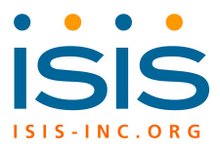I was reading the NTEN blog and found a great little article about reaching low income people with technology which features Joyce Raby from Legal Services Corporation, and some words from Lee Rainie of the Pew Internet and American Life Project , a non-profit research center studying the effect of the internet on American's. Anyway, particularly interesting for public health is Rainie's idea of "digital natives," or kids born after 1985 who have basically grown up with the Internet, and who are excellent targets for technology based messaging.
With our SEXINFO project (sexual health resource guide via text message), 90+ % of youth who remembered seeing the ad campaign for the text messaging service had their own phone. This was really surprising to us because all of these youth were from one of the lowest income neighborhoods in San Francisco.
The latest report from pew is a demogrpahic report about latinos with less english proficiency remaining a disporportionatly low percentage of total Internet users in the U.S. So, while the digital divide doesn't extend to youth in a general sense, non-english speakers (including youth), still don't have adequate access to Internet resources, even if they have access to computers.
InSPOT, our online STD/HIV partner notification system will soon be translated into Spanish. Perhaps translating SEXINFO as well will extend its benefit even farther.
Monday, April 2, 2007
Subscribe to:
Post Comments (Atom)



No comments:
Post a Comment